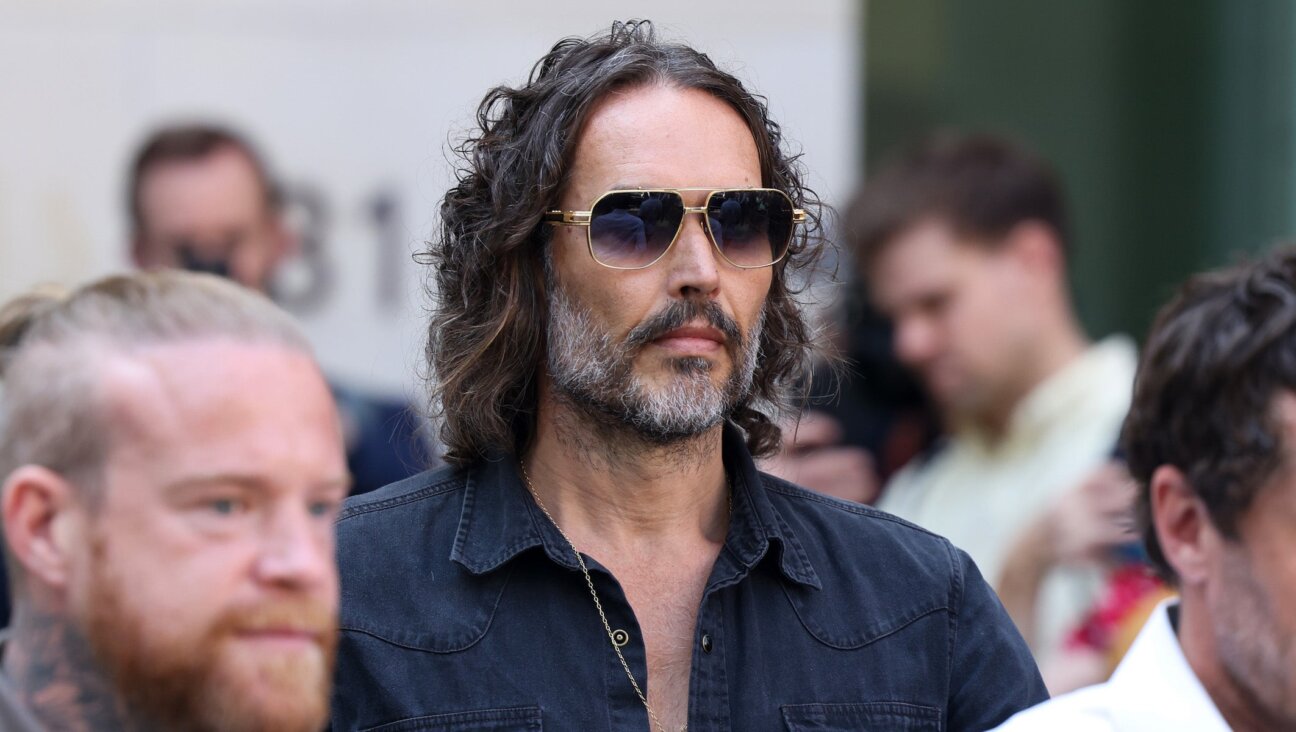Friday Film: Jews and Their Opinions

Courtesy of Snitow-Kaufman Productions
“Between Two Worlds” doesn’t unfold like a traditional documentary. Instead, Deborah Kaufman and Alan Snitow’s earnest exploration of Jewish identity uses loosely connected sequences to illuminate tensions between post-Holocaust protectionism and post-Diaspora leftism. For a people who still occupy an uncertain footing in the world, does dissent equal betrayal? Who is entitled to speak for the Tribe? And who gets to decide what being Jewish is in the first place?
The film, which received its New York premiere June 30 at IFC Film Center, shouldn’t work. It makes abrupt transitions from its opening scenes at the San Francisco Jewish Film Festival — where a documentary on slain activist Rachel Corrie sparks a firestorm (and where the film itself is scheduled to screen later this month) — to Jerusalem, where construction of the Museum of Tolerance threatens to displace an Arab burial ground, to Berkeley, where an auditorium of overheated students votes on divestment from Israel.
But by using their personal histories as connective tissue, the husband-and-wife filmmaking team manages to present a forceful work that draws power by raising questions that don’t find any neat resolutions. And, judging from this film, may never.
Notably, the filmmakers are fastidious about presenting counterpoints to every point. For every traditionalist like the Jewish Theological Seminary’s Jack Wertheimer, there’s a “reinterpreter” like Berkeley Rabbi Dorothy Richman. (“Belief isn’t the point. Commitment is the point.”) For every righteously angry John Rothmann — the San Francisco radio host who lambasted the SFJFF for presenting the Corrie film — there’s a Daniel Sokatch, the thoughtful former head of San Francisco’s Jewish Community Federation. “We don’t have a Pope in the Jewish community,” he says. “There is no sole arbiter.” For every Rabbi Marvin Hier, defending the Museum of Tolerance’s ill-fated Jerusalem real-estate venture, there’s a Gershon Baskin, bearlike leader of the Israel-Palestine Center for Research and Information. “I believe that the Holocaust is not the center of our identity,” Baskin says. “The center of our identity is the moral code that we have been brought up with which is the heart of what Jewish traditions and values teach us.”
Fred Frith’s spare, almost subliminal guitar soundtrack nudges the film along compellingly; nimble editing keeps the talking-heads setup from dragging. A refreshingly straightforward approach to the material — no animated graphs, no dancing photos, no solemn dramatizations — lets the interviews speak for themselves. Ultimately, it’s Sokatch, now head of the New Israel Fund, who nails the paradox at the film’s heart. “Hope,” he says, “lies in alternative to the absolute.” Just like “Between Two Worlds.”
Watch the trailer for ‘Between Two Worlds’:























